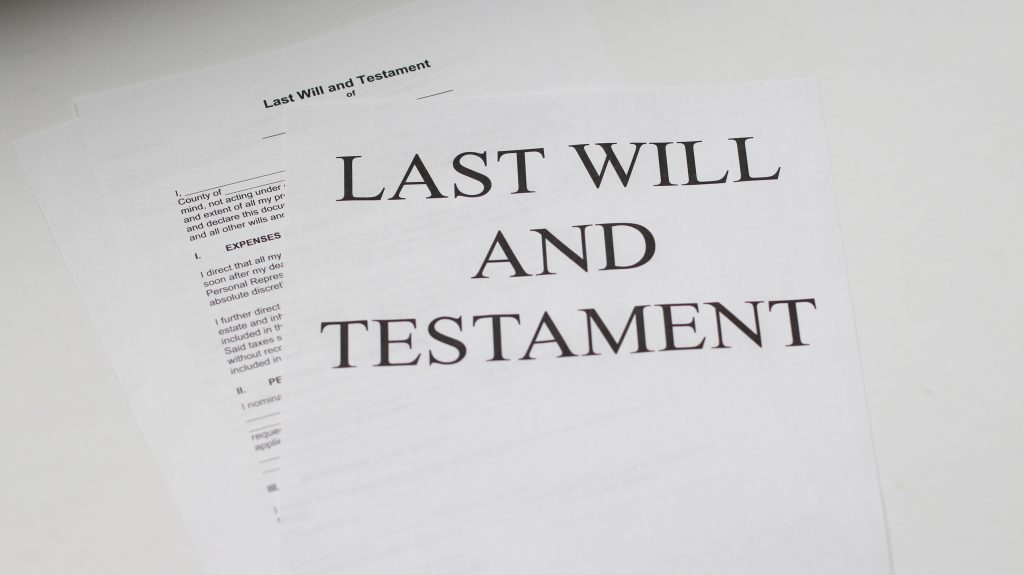Are you a senior citizen who is starting to think about estate planning? If so, you’re in luck – this article will provide you with a checklist of things to do to make your estate planning as smooth and easy as possible. Following these steps ensures that your loved ones will be taken care of after you’re gone. So what are you waiting for? Read on for helpful tips!
What Is An Estate Plan?
Estate planning is organizing and managing your assets in preparation for death. Many people think estate planning is only for the wealthy, but everyone can benefit from having an estate plan. An estate plan is a legal document that can help you control what happens to your assets after you die, minimize estate taxes, and make the probate process easier for your loved ones.
You can use a few different estate planning strategies, but the most important thing is a plan that meets your unique needs. You can create an estate plan on your own or with the help of an estate planning attorney. If you have a complex financial situation or a large estate, you may consider working with an attorney to ensure your plans are properly executed.
No matter your estate planning goals, it’s important to start sooner rather than later. It’s never too early to start thinking about how you want your assets to be distributed after you’re gone. By making your wishes known now, you can give your loved one’s peace of mind knowing that they’re carrying out your wishes according to your exact specifications.
Why Is Estate Planning Important For Seniors?
For seniors, estate planning is a necessary legal process that helps to ensure that their assets are distributed according to their wishes. Without a formal estate plan, bank accounts, retirement accounts, and other assets may be frozen or distributed to family members who the senior does not want to receive them. An estate plan can also help avoid probate, a legal process that can be expensive and time-consuming.
In addition, an estate plan can provide peace of mind by ensuring that a senior’s final wishes are carried out. As a result, seniors should take the time to create an estate plan with the help of an experienced attorney.
Estate Planning Checklist For Seniors
While there is no one-size-fits-all approach to estate planning, there are some essential documents that every senior should have in place.

Last Will And Testament
One of the most important estate planning documents is a last will and testament. You can specify how your property and possessions will be distributed after your death in a will. You can also use a will to appoint a guardian for minor children or pets. To be valid, a will must be signed by you and witnesses, and it should be kept in a safe place where your loved ones can easily access it.
Power Of Attorney
There are many reasons why you might appoint a power of attorney. If you become incapacitated, your power of attorney can make financial and legal decisions on your behalf. This can be especially useful if you have significant assets or property.
A power of attorney can also help to manage your affairs if you are absent or traveling. You can appoint a power of attorney to handle your finances, property, healthcare, and other important matters.
When choosing someone to appoint as your power of attorney, you must implicitly choose someone you trust. This person should be reliable and responsible, and they should have a good understanding of your wishes. It would help if you also considered appointing an alternate power of attorney if your first choice is unable or unwilling to serve. Once you have appointed a power of attorney, keep the document in a safe place where it can be easily accessed.
Life Insurance Policies And Financial Information
If you have a life insurance policy, it’s important to review it regularly to ensure it still meets your needs. If your policy was purchased many years ago, the coverage amount might no longer be adequate. In addition, you may need to change the beneficiaries on your policy.
For example, if you have children who are now adults, you may want to change the beneficiaries to your grandchildren. Taking a few minutes to review your life insurance policy will ensure that it continues to meet your needs as you age. Here are some things to keep in mind when reviewing your life insurance policy:
The amount of coverage you need will change over time, so it’s important to review your policy regularly and ensure that it is still appropriate.
Property Deeds
For seniors, estate planning with property deeds can be essential to ensuring their wishes are carried out after they’re gone. By transferring ownership of their property before they die, seniors can avoid probate and ensure that their assets go to their intended beneficiaries. Additionally, seniors can use property deeds to establish trusts, minimize gift and estate taxes, and reduce the risk of their assets being seized in a lawsuit.
While property deeds are a simple way to transfer ownership of real property, there are some important things to keep in mind. First, it’s important to ensure the deed is adequately prepared by a lawyer or notary public. Second, the deed must be signed by both the grantor and grantee in front of witnesses. Finally, the deed must be properly recorded with the county clerk to bind legally.

Digital And Financial Accounts Login And Passwords
Estate planning for seniors should also include a plan for how these digital and financial accounts will be handled.
One option is to create a list of all digital and financial accounts, including login information and passwords, which can be stored in a secure location such as a safety deposit box. This list can then be provided to a trusted individual, such as a family member or close friend, who can access the accounts in the event of your death.
Another option is to use a password management service to store login information for multiple accounts in a secure online location. This service typically offers options for sharing account information with designated individuals during your death. Whichever approach you choose, estate planning for seniors should take into account the need to manage digital and financial accounts.
Set Up A Trust
A trust is a legal arrangement whereby you (the grantor) transfer assets to a trustee, who then holds and manages those assets for the benefit of the beneficiaries. Trusts can be used for various purposes, including asset protection and estate tax planning.
Make Funeral Arrangements
It’s a good idea to make funeral arrangements, so your loved ones don’t have to worry about it after you’re gone. You can pre-plan your funeral by choosing your casket, funeral home, and other details in advance.
Review Your Retirement Accounts
Ensure that your retirement accounts (e.g., 401(k), IRA) are up to date and that the beneficiaries are still correct. You may also consider using a retirement account as your estate planning strategy.
Update Your Beneficiary Designations
If you have any assets with beneficiary designation (e.g., life insurance, retirement accounts), ensure that the beneficiaries are still up to date.
Make Sure Your Loved Ones Are Aware Of Your Wishes
It’s essential to have a conversation with your loved ones about your estate planning wishes. This can help avoid any disagreements or misunderstandings after you’re gone.
By following this checklist, you can make estate planning for your loved ones much more accessible.
Summing Up
Thank you for reading our estate planning guide for seniors. We hope that this information has been helpful and provided you with a better understanding of the estate planning process. If you have any additional questions, please do not hesitate to contact us.
